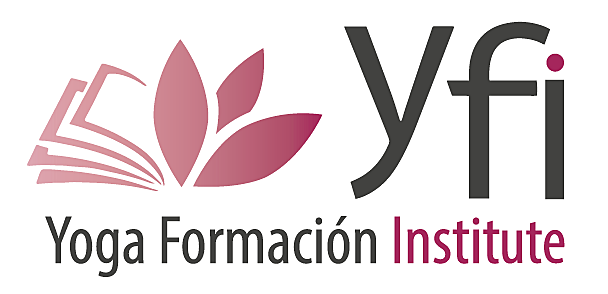It is difficult to find happiness within oneself, impossible to find it anywhere else
Arthur Schopenhauer
What is Meditation? What is Mindfulness?
Meditation
Meditation is a practice that is intended to still our inner world and create harmony between the individual and her world. It is a practice that spans religions and secular traditions. Meditation has a place in all the major cultural traditions of the world. There exist many alternative meditation practices to cope with the turbulence in our lives. But it is very difficult to answer the simple question- what is meditation? - because meditation spans so many traditions.
Two Major Types
The word meditation refers to two different types of mental activity. The first is thinking deeply about something. The second is a practice “a procedure to allow the mind to leave all thoughts behind, experience its own inner source, and emerge refreshed, revitalized and even transformed” (Shear, 2006).
Various Practices
What are the various practices that different traditions teach? Are they the same or different? A common misconception is that all meditation procedures are mostly the same. But this is misleading for major traditions differ in many important ways. Traditional meditation practices can differ about the mental techniques they use - attention, feeling, reasoning, visualisation, memory, bodily awareness etc. - and the way these techniques are engaged - effortlessly, forcefully, actively, passively - and the objects upon which they are directed to - thoughts, images, concepts, internal energy, breath, subtle aspects of the body, love, god etc.. They differ about the question of belief and their goals. Because the world’s major meditation traditions can differ so much, it is a mistake to regard them as the same.

Mindfulness
What is today called Mindfulness is one of the many varieties of meditation practices.
“The Buddhist technical term was first translated as ‘mindfulness’ by T. W. Rhys Davids in 1881. …Initially the definition
was based on readings and interpretations of ancient Buddhist texts. …. In particular, Nyanaponika’s definition appears to have had significant influence on the definition of mindfulness adopted by those who developed MBSR [Jon Kabat Zin]
and MBCT [Mark Williams ]. … traditional Theravada definitions… are not initially apparent in the definitions current in the
context of MBSR …. the MBSR and MBCT notion of mindfulness as ‘non-judgmental’ needs careful consideration from a
traditional Buddhist perspective.” (Gethin, R., 2011).
- Gethin, R., (2011), On some definitions of mindfulness, Contemporary Buddhism, 12: 1, 263 — 279
- Shear, J., (2006), The Experience of Meditation, Paragon Press
Happy People's Minds Don't Wander
When you were very unhappy you probably attributed it to some specific troublesome situation. A Harvard study revealed that wandering minds are related to unhappiness. Those able to focus on the tasks at hand were happier than those with constantly wandering minds. The study suggests what the Indian meditation tradition has long taught - an unruly mind leads to unhappiness. Happiness is within (mastering the mind), not in the external factors. The study showed that unhappiness wasn't due to the mind wandering to unpleasant things. The mind wandering to neutral or pleasant thoughts was still less happy than if it didn't wander at all.
Harvard Study
The Harvard study confirmed the results of research conducted on meditation and mindfulness for over 40 years. Mihaly Csikszentmihalyi refers to this state of focused mind as "flow." Csikszentmihalyi described flow as, being absorbed in the activity in which one is engaged. It doesn't matter the task -- what matters is that you are fully engaged in what you're doing. Csikszentmihalyi's studies concluded at the time that our happiest moments are usually in the state of flow. This a highly alert state of mind, with one-pointed attention.
State of Flow
When you are engaged in your activity, you're not concerned with regrets or worries or plans. In the state of Flow you live your life as it unfolds in the present. The latest research confirms that meditation and mindfulness increase this type of happiness. To be focused and engaged is how we usually experience life's moments as more fulfilling.
Life Circumstances
Some people don't believe that the causes of happiness are so simple. They say that: they are too poor; they've got too many worries; and that life has not been good to them.
Your life circumstances have a lot less to do with your happiness than you may have assumed.
Psychological Science
The Association for Psychological Science found that people of a high economic status are no more happy than poorer people. Happiness does not come from your career or your relationship or what you can afford or where you live. The evidence found that happiness comes from cultivating a healthy and balanced mind through the flow state during your favoured activities and when practicing meditation or mindfulness.
An Old Saying
There is an old saying: "Happiness is a state of mind." Research confirms it.
Meditation
Some definitions by which 'meditation' is usually characterized:
- A state of concentration on the present moment.
- A state experienced when the mind dissolves and is free of its own thoughts.
- A concentration state in which attention is released from its common activity and focuses on God (of theistic religions).
- Focusing the mind on a single object, such as the act of breathing, a candle flame, or the constant recitation of a mantra or a series of them.
The verses of Buddha's "Satipathanna" and the "Raja Yoga Sutras" of Patanjali are universally recognized as classics of Eastern traditions. More recent teachers such as Vivekananda, Ramana Maharshi, Aurobindo, Krishnamurti in India, Goenka in Burma, Suzuki of Japan and many others adapted meditation to Western culture.
Meditation is not a belief system to be followed. It is noteworthy that the founders of the various schools of meditation taught different methods.Westley Eckhardt teaches advanced meditation courses and offers mindfulness counselling for those who wish to deepen their personal meditation/mindfulness experience.
Tranquility
The state of conscious relaxation is meditation. To extend that state in the comfort and quiet of a suitable posture of the body or in the activity of your daily life, is the goal of our sessions and exercises. It opens a new perspective that is deeply embedded in the calm and serenity of your body and mind.
You may also be interested in:
- Our meditation classes
- Our advanced meditators workshop series
- Our Meditation Instructor Course Madrid:
- Our Meditation Instructor : Summer Course
The mind is its own place, and in itself
Can make a Heav'n of Hell, a Hell of Heav'n"

